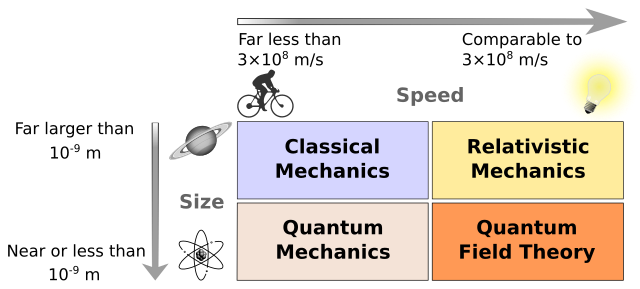Announcements
- Homework 1 is due next Friday
- Help sessions will start next week
- Complete the student information survey; help session survey
- Friday's class will include AI policy discussion
- We will get folks started with VS Code
- We will also work Homework 1 Exercise 3 together
- DC aware of Gradescope issues; let's check in Friday.
Goals for this week
Be able to answer the following questions.
- What is Classical Mechanics?
- How can we formulate it?
- What are the essential physics models for single particles?
- What mathematics do we need to get started?
Take 2 min to write down what comes to mind when asked:
What is "Classical" Physics?
Classical Mechanics
Modeling large, slow-moving objects
Newton's Laws are but one of a number of formulations:
- Lagrangian Mechanics
- Hamiltonian Mechanics
- Dynamical Systems Theory
- ...
An Overview of Different Physics

Classical Mechanics has a long history
Wherever folks were figuring out their world, there was classical mechanics
- Astronomical analyses in Sub-Saharan Africa in 300 BCE
- Scientific expansion in China during the Song dynasty
- The Islamic Golden Age
- Indigenous astronomy
Classical Mechanics is still very relevant
Tiny Limbs and Long Bodies: Coordinating Lizard Locomotion
Research Lab
Source: https://youtu.be/Qme07fA3Fj4
Canonical Example from Introductory Physics

- Box on a ramp with a frictional interaction
- At what angle does it slide for a given
Think-Pair-Share
We used a tilted coordinate system (
Recall:
Come up with at least two checks.
Clicker Question 2-1
The formal definition of a Taylor series expansion around a point
This formula makes me feel:
- Confident, I got this.
- A little nervous, but I think I remember.
- Uncomfortable, I don't remember this.
- I have no idea what this is.
Think-Pair-Share
We derived the following differential equation for the falling ball in one-dimension:
Let's assume the turbulent drag term is negligible. Is there an anti-derivative of the right-hand side of this equation? If so, what is it?
Example: Ball Falling in 1D in Air
We derived the following differential equation for the motion of a ball falling in air:
We argued for low speeds, we neglect the
We can instead write this differential equation for
Example: Ball Falling in 1D in Air
Is this integrable? Yes!
We will come back to this next week.
Vector Properties
Newtonian Mechanics is a vector theory. Here are a few mathematical properties of vectors:
- Addition:
- Scalar Multiplication:
- Dot Product:
- Cross Product:
- Unit Vectors:
